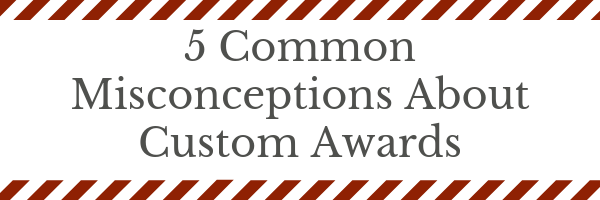Estimated read time: 9 minutes

How do you approach sales? Do you think if you can sell one product, then you can sell anything?
So if you sell apples, then do you believe you can sell oranges, bananas, and pumpkins the same way? All you have to do is throw everything in a catalog and say, “Here you go,” with a little bit of background knowledge and pull out your famous “salesperson” persona?
If that’s how you approach sales, and want to continue doing so, then stop reading. Walk away and stay in your bubble… far, far away from here.
Selling Promo Products a Little Differently
We approach sales in a completely different way and don’t want to be caught dead in believing that all products are created (and sold) equally.
For those on the other side of the metaphorical train tracks or are checking out the “forbidden fruit” in promotional products, then we’re talking to you – the risk takers and creative thinkers.
We want to give you some sales tips we’ve found through the years, because we’ve been around for a while (*cough, cough* since 1938 *cough, cough*). Yes, we are a little old, but that means we
1) Have a niche
2) We’re experienced and know what we are doing
7 Promotional Product Selling Tips: How to Sell Custom
Here are 7 tips that we suggest taking a look at, especially if you want to break out of the transactional promo field and into the field of custom.
1. Research the company.
This might be Sales 101, but so few sales people do this before walking into a sales call. Or, the few that do some research, might not have noticed little nuggets that spell opportunity if you put the pieces together. Yes, research the usual; such as the company background, structure, and so on. However, think about custom opportunities, too.
Did you know that one well-known international pizza company has a national pizza making competition every year? Don’t you think that they might want some custom shirts and awards to hand out for this unique event?
Another thought is how the company is working with employees. Do they do onboarding gifts? How do they honor Veterans, display achievements, or promote years of service? There are countless opportunities that you can look for. Research what their company culture and branding is like.
Understand a bit about their voice, history, and branding before you walk through the door – do your homework so the conversation is more fruitful for everyone.
2. Research the industry.
Some call this unnecessary, others call this Sales 102, but either way, you should give industry research some credit. You can walk in with a portfolio catered to what is relevant to their industry and understand the timing for products.
Timing? Yes, knowing that a culinary company will need a lot of branded chef jackets is good, but what about knowing when they have industry competitions or award ceremonies? Did you know that in the Insurance industry, they don’t award their sales people at the end of the year? Instead they do sales awards in the first month of hiring! They believe that it motivates more and is a forecast for their sales people.
Understanding industry standards gives you background knowledge to better advise and have a beneficial conversation for both parties.
Pro Tip: Want to take it a step further? See what some of their competition is doing. Are they doing something creative that you know you can beat and might be beneficial for your prospect’s goals? It never hurts to do research – it’s free and makes you look better.
3. Have a conversation.
Please, please don’t walk through the door and just start a sales pitch. A sales call should be a conversation. Listen to their pain points and see how you can help. If you have a true conversation, you will get an in-depth understanding of their goals, needs, and wants. Having a conversation will not only be refreshing for the prospect, but it will teach you more about the company as well. People remember those that treat them as humans rather than a money clip. As the conversation progresses, you will build knowledge and a relationship. If the prospect decides to proceed with you, you now have a better understanding of who they are and their needs, so you can recommend more targeted solutions.
Solutions? Yes, promotional products are more than just “stuff.” It’s marketing, whether internal or external. Branded materials should assist companies in what they want, which can be anything from an event, new product launch, employee recognition, or something else altogether. You want to approach this sales call as a marketer, see a pain point, or problem, and recommend solutions.
4. Listen.
Stop, collaborate, and listen. No, a conversation does not mean interrupting every few sentences and leading with the lowest price from a foreign sweat shop. Listen to what your prospect actually wants to talk about. You might have ideas about products X, Y, and Z, but they might be looking more for F, G, or H. Learn to listen and be willing to pivot to best help them.
Active listening is one of the hardest, but most vital skills to develop. This means everything from eye contact and other non-verbal cues, to truly listening and not just waiting to talk again. When you actually listen to what your prospect has to say, then you will be able to see if you can have a mutually beneficial relationship and understand enough to recommend useful and viable products.
When you listen to your prospect, suddenly you are not taking a “risk” to recommend a completely custom piece; you have confidence in your relationship and recommendations, as well as have built a rapport enough for them to consider your recommendation.
5. Be creative.
How often do you actually get to be creative? We’re not talking about choosing a color and a little bit of stitching on a bag. We mean you and your customer are given a blank sheet of paper and the three of us collaborate together. When was the last time you could be completely creative with a prospect?
Want to be abstract and show a bell curve in an award? We can do that. Want to be literal and show a replica of their product – a sausage? Check. Need a custom bronze pig with an apron and a client name on the pocket? We’ve done that too. We can take a few words or a sketch on a napkin and turn it into something memorable and inspiring. That’s what we do for a living.
This means you can walk in and have the confidence of selling a completely custom product. You can start a conversation with a blank sheet of paper if you want. Let your creativity fly.
Who doesn’t want a completely custom piece? It’s a huge selling point for prospects and helps you standout. Which, at the end of the day, that’s why prospects come to promo product sales people, for creative and innovative ideas for branded and promotional products.
All we ask is to that you have an open mind and have fun – be creative! And that’s why you got into this business, right?
Pro Tip: Choose unique products for your portfolio that have stand-out and selling points that make you unique versus your competition.
6. Customer Service.
This business is best when it is personal, not transactional. Making a connection and building a relationship with your prospect will endear you to them and vice versa. The promo products industry doesn’t need another large, faceless entity that no one knows, but just orders from. To stand out, you want to build relationships and become partners, which is the whole point of sales.
So what does that mean? This means have regular phone calls or meetings. This means building a relationship. Once you get their business, keep it. We’re not saying that you have to call on these people every week (which wouldn’t be advisable anyway, since they are busy too). We’re talking about checking in to see how they are, answering their phone calls, and giving them the same incredible service you gave them when you first sold them something. That goes a long way in keeping customers.
And guess what, award programs typically last for years, so if you regularly check in, you will most likely get regular award orders until they are ready to change up the design or do more. Always have great customer service so they know where to go if they have questions or if they want more.
A mark of a good sales person is not just all the new business, but also retaining customers. This means you should get repeat sales from the relationships you have worked so hard to build.
7. Look for opportunities.
If you’ve taken our advice, then you regularly have conversations with your customer and have a deep understanding of their business and company culture. Now, you should be able to easily spot opportunities that are a natural fit or an easy transition for them.
Here are some examples:
- If a company does Sales and Rookie awards, but doesn’t recognize their fantastic customer service department, why don’t they add an award system for that department to show that they care?
- Does the company want to improve their attendance? Start a perfect attendance recognition program or display.
- Is this a Veteran-owned or proud company? Consider a Veteran Honor Wall for their lobby.
- Launching a new product or campaign? Give out commemoratives.
- If the company is sponsoring a competition then a custom trophy would help with brand recognition and show the company’s individuality.
Promotional products are a fun industry to be in, but it’s a competitive arena. You have to be unique and memorable. With the impending behemoths of Amazon, Walmart, and other giants getting in or are already in the game of transactional promo products, fully custom products are where the future of this business is going. With these tips, you can be the custom products hero for businesses.
Want to get started? Check out our website to learn more about 100% custom pieces or just reach out to start a conversation; we can help get you started on selling custom pieces.
![]() Kristina Hublar is the Marketing Specialist at Bruce Fox, Inc., which means she is the person behind the keyboard for the social media, emails, website, and other marketing efforts. She’s new to Bruce Fox, but is an Indiana native. In her spare time, you’ll find her plotting her next road trip, bobbing along to music while crafting, spending time outside with loved ones, or with her nose in a book.
Kristina Hublar is the Marketing Specialist at Bruce Fox, Inc., which means she is the person behind the keyboard for the social media, emails, website, and other marketing efforts. She’s new to Bruce Fox, but is an Indiana native. In her spare time, you’ll find her plotting her next road trip, bobbing along to music while crafting, spending time outside with loved ones, or with her nose in a book.











